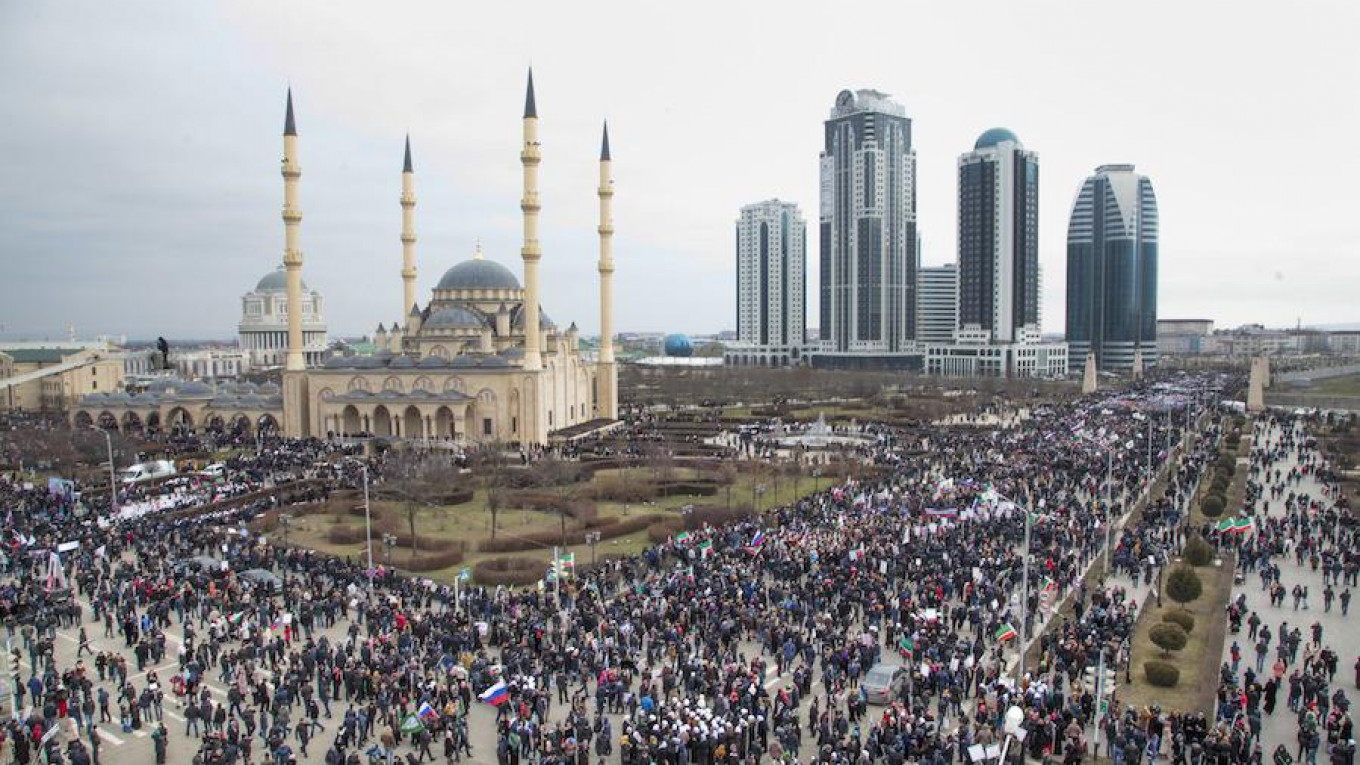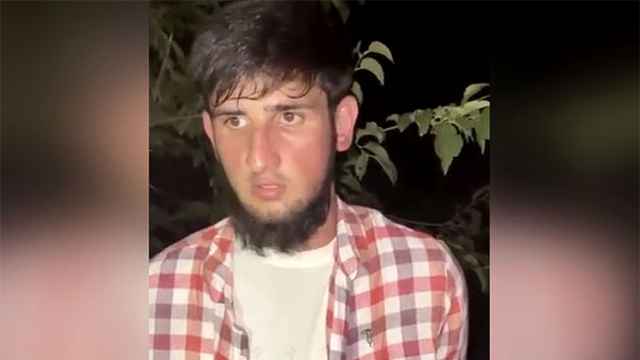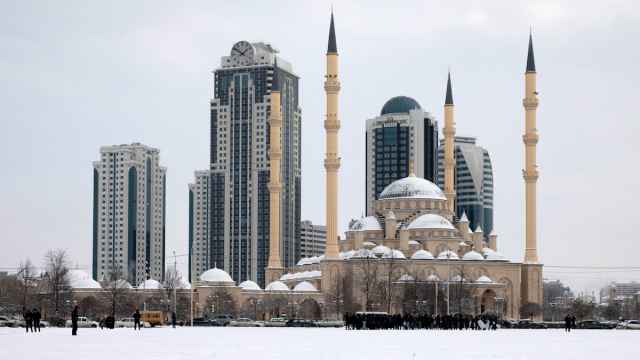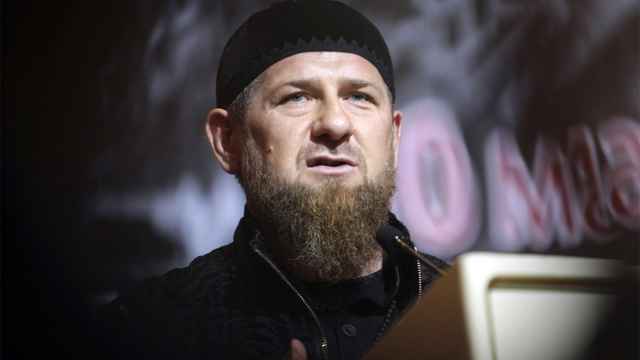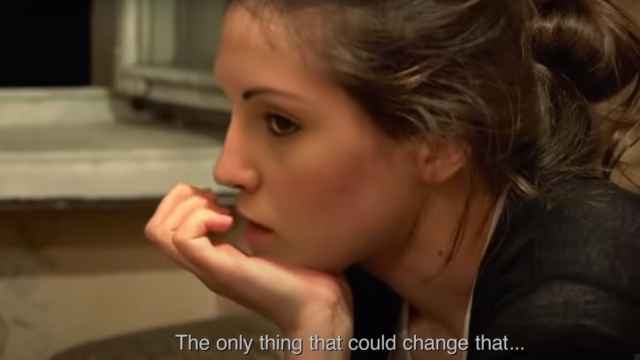On April 1, the Novaya Gazeta newspaper reported that the Chechnya’s authorities had unleashed a large-scale crackdown on gay men. More than 100 men were detained and tortured in a special prison in February and three unnamed men were killed by their own relatives, the newspaper alleged. Novaya Gazeta cited multiple sources in the republic’s government and Interior Ministry, the Federal Security Service, and the State Prosecutor’s office, as well as among LGBT activists to support its allegations. On April 8, Radio Svoboda, citing its own sources, confirming the crackdown and the existence of two such specialized prisons in the republic. It also reported that two men had been murdered.
The shocking revelation prompted an equally forceful official response. Alvi Karimov, spokesman for Chechen leader Ramzan Kadyrov, said that gay people “simply do not exist in the republic. If there were such people in Chechnya,” he added, “their relatives would send them somewhere from whence there is no returning.” Chechnya Human Rights Council member Kheda Saratova said the republic’s citizens “would take a tolerant view” of people who murdered their gay relatives, later explaining that this was due to homosexuals’ “deranged condition.”
Russian presidential spokesman Dmitry Peskov said that investigating such claims was a “law enforcement issue,” while Mikhail Fedotov, head of Russia’s Human Rights Council, said the claims were “monstrous” and “should be verified thoroughly.” Responding to an appeal by the Council of Europe and Amnesty International, Russia Human Rights Ombudswoman Tatiana Moskalkova submitted an inquiry to the Chechen Interior Ministry asking about “the kidnapping of people in general.” Chechnya’s official reply stated that there were no reports of any abductions in the republic from January 1 to April 1, 2017.
The situation is horrible, but consistent with a region that maintains ancient customs and hermetically seals itself off from the outside world. Against a backdrop of frequent acts of blood revenge and bride kidnapping, it is easy to imagine why homosexuality is considered a disgrace and a matter of family honor. The region is under the control of a highly authoritarian leader who professes so-called “traditional Islam” – a set of beliefs that does not look favorably on gays, to put it mildly. The authoritarian leader has his own armed guards and a special relationship with the rest of the country. Inquiries submitted from elsewhere in Russia — concerning the murder of journalists and human rights defenders such as Natalia Estemirova, the rise in abductions (the subject of a Human Rights Watch report in August), the persecution of suspected terrorists’ family members, and attacks against journalists and human rights defenders — often go unanswered. Often, it is even impossible to question Chechen suspects in a high-profile murder case, such as the killing of opposition politician Boris Nemtsov. It is no wonder, then, that the Prosecutor General’s Office and the Investigative Committee tend to avoid any dealings with Chechnya.
This has created a vicious circle. Moskalkova complains that the newspaper does not name the alleged victims, but to do so would place them in mortal danger. The authorities use that absence of names as a convenient pretext for not responding to an inconvenient problem.
A Message from The Moscow Times:
Dear readers,
We are facing unprecedented challenges. Russia's Prosecutor General's Office has designated The Moscow Times as an "undesirable" organization, criminalizing our work and putting our staff at risk of prosecution. This follows our earlier unjust labeling as a "foreign agent."
These actions are direct attempts to silence independent journalism in Russia. The authorities claim our work "discredits the decisions of the Russian leadership." We see things differently: we strive to provide accurate, unbiased reporting on Russia.
We, the journalists of The Moscow Times, refuse to be silenced. But to continue our work, we need your help.
Your support, no matter how small, makes a world of difference. If you can, please support us monthly starting from just $2. It's quick to set up, and every contribution makes a significant impact.
By supporting The Moscow Times, you're defending open, independent journalism in the face of repression. Thank you for standing with us.
Remind me later.


